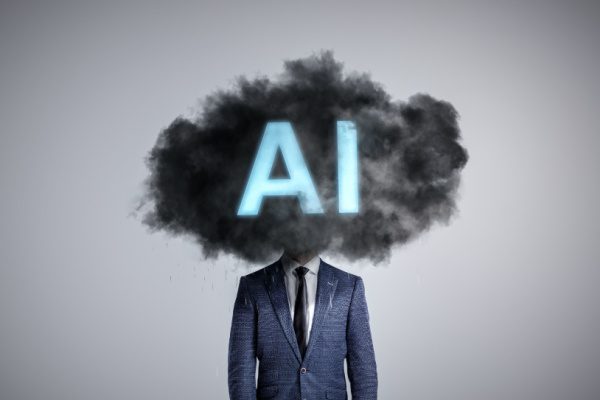
The rise of artificial intelligence (AI) has led to significant advancements across various industries, raising questions about its potential to replace human jobs. One profession that has been subject to speculation is coaching. In this article, we will examine AI’s role in coaching and discuss its potential to replace human coaches.
The Essence of Coaching
Coaching is a multifaceted profession that provides guidance, support, and motivation to individuals or teams in achieving their goals. Coaches employ empathy, emotional intelligence, and expertise to facilitate personal and professional growth. The coaching process often includes active listening, asking powerful questions, and providing constructive feedback tailored to an individual’s needs.
AI Advancements
AI has made significant strides, enabling machines to perform complex tasks and mimic human behavior. Natural Language Processing (NLP) algorithms, machine learning, and predictive analytics have enhanced AI’s ability to understand and respond to human interactions. AI chatbots and virtual assistants now simulate human-like conversations.
Potential Benefits of AI in Coaching
1) Accessibility and Affordability
AI-powered coaching platforms can make coaching more accessible and affordable. People in remote locations or those with limited financial resources could benefit from the convenience and lower costs associated with AI coaching tools.
2) Personalization
AI algorithms analyze vast amounts of data to provide personalized recommendations and insights. AI systems offer tailored coaching interventions by processing information about an individual’s behavior, preferences, and goals, potentially enhancing the overall coaching experience.
3) Scalability
AI operates at a large scale, reaching broader audiences simultaneously. This scalability is advantageous when the demand for coaching exceeds the availability of human coaches.
Limitations of AI in Coaching
1) Lack of Human Connection
Coaching relies on human connection and empathy. While AI chatbots can simulate conversations, they may not fully capture the depth of human emotions or provide the same level of understanding and support as a human coach.
2) Contextual Understanding
Coaches rely on intuition and contextual understanding to navigate complex interpersonal dynamics. AI algorithms, although sophisticated, may struggle with the nuances of human behavior and context, leading to potentially inaccurate or ineffective advice.
3) Nonverbal Communication
AI, limited to text or voice-based interactions, may miss nonverbal cues like body language, facial expressions, and tone of voice. This limitation restricts its ability to provide holistic coaching.
While AI has the potential to augment coaching processes, it is unlikely to completely replace the coaching profession. Human coaches possess a unique ability to establish trust, build relationships, and adapt their approaches to individual needs.
Research highlights the importance of human interpersonal factors in the effectiveness of interpersonal interventions, to which coaching belongs as a modality. Although research mostly refers to therapeutic modalities, the same applies to coaching relationships.
Here are summaries of several studies in this field:
- The Alliance Factor: The therapeutic alliance, characterized by the relationship quality between the therapist and client, has consistently been identified as a crucial factor in therapy outcomes. A meta-analysis by Martin, Garske, and Davis (2000) found that a strong therapeutic alliance was associated with better treatment outcomes across various therapeutic approaches and client populations.
- Empathy and Understanding: A study conducted by Elliott, Bohart, Watson, and Greenberg (2011) explored the impact of therapist empathy and understanding on therapy outcomes. The findings revealed that therapists’ ability to demonstrate empathy and understanding significantly correlated with positive client outcomes and satisfaction with therapy.
- Personalized Approach: Norcross and Lambert (2018) conducted a meta-analysis of factors influencing therapy outcomes. They found that therapists who tailored interventions to individual client needs achieved better results than those who relied solely on manualized or standardized treatments.
- Therapist Expertise and Competence: Research consistently indicates that therapist competence and expertise plays a crucial role in therapy outcomes. A meta-analysis by Wampold, Minami, Baskin, and Tierney (2002), identified therapist competence as a reliable predictor of positive treatment outcomes across modalities.
- Cultural Sensitivity: A therapist’s cultural competence significantly impacts therapy effectiveness, particularly when working with diverse populations. Griner and Smith’s (2006) study found that culturally sensitive therapists who adapted their interventions achieved better outcomes.
- Non-Specific Factors: Baldwin and Imel’s (2013) meta-analysis examined the contributions of specific treatment techniques versus non-specific factors in therapy outcomes. Non-specific factors, such as therapeutic alliance, empathy, and positive regard, were found to significantly contribute to treatment effectiveness.
These studies highlight the significance of human interpersonal factors, including therapeutic alliance, empathy, personalized approaches, therapist expertise, cultural sensitivity, and non-specific factors, in the effectiveness of psychotherapy and other interventions. While specific techniques and interventions are important, the human element remains fundamental to successful coaching outcomes.
In conclusion, while AI advancements have the potential to enhance coaching processes, it is unlikely to replace human coaches completely. The coaching profession relies on human connection, empathy, and adaptable approaches. Research on the effectiveness of interpersonal interventions, including therapy and coaching, consistently emphasizes the importance of human interpersonal factors. Studies have shown that factors such as therapeutic alliance, empathy, personalized approaches, therapist expertise, cultural sensitivity, and non-specific factors significantly contribute to positive outcomes. While AI offers accessibility, affordability, scalability, and personalized insights, it lacks the depth of human emotions, contextual understanding, and nonverbal communication. The human element remains a crucial aspect of successful coaching outcomes, and the unique abilities of human coaches to establish trust, build relationships, and adapt to individual needs cannot be replicated by AI.







